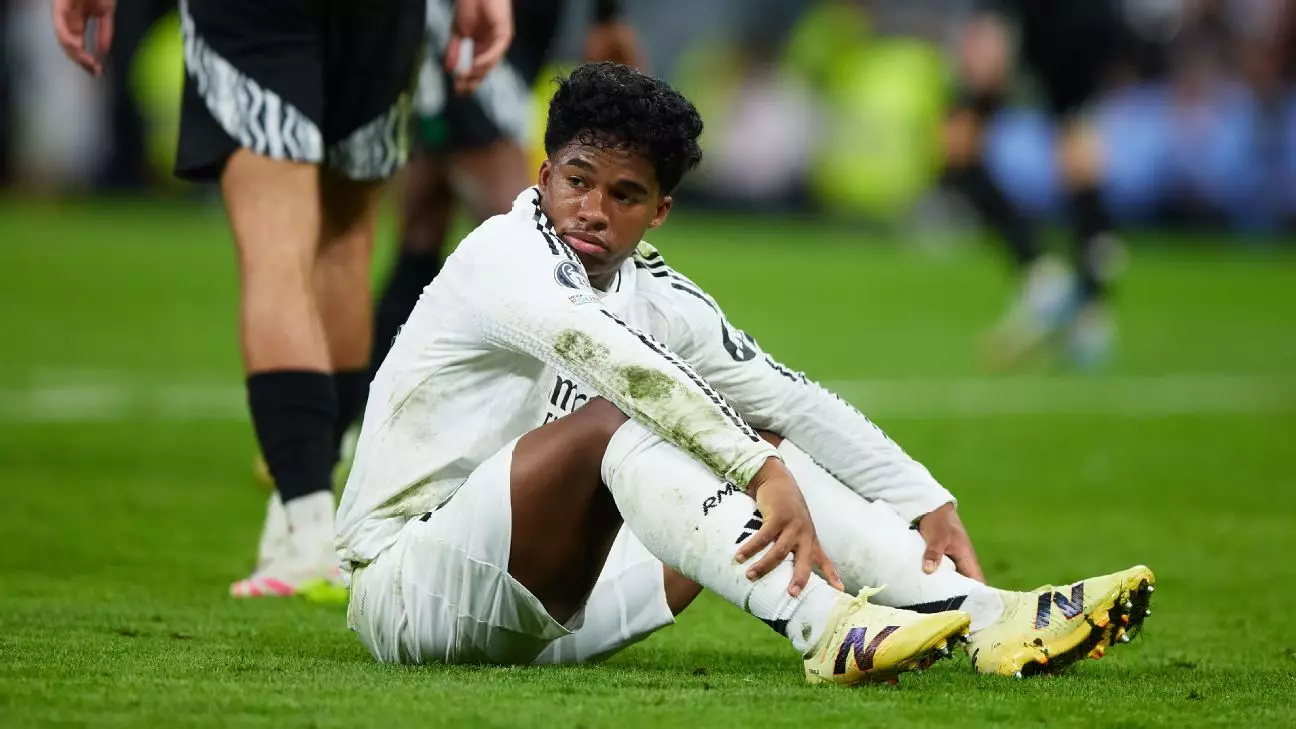In a season marked by significant injury woes, Real Madrid finds itself grappling with fresh challenges as forward Endrick is sidelined for two months due to a hamstring injury. This news, confirmed to ESPN, not only compromises Madrid’s attacking options as they prepare for the Club World Cup but also raises questions about player fitness management and the impact of injuries on team performance. The absence of a player of Endrick’s caliber is a tough blow to the squad, especially during such a crucial tournament, where every match can be pivotal for momentum.
The confirmation from Madrid’s medical staff regarding Endrick’s injury highlights the vulnerability of a squad that has seen numerous players hampered by fitness issues in recent months. Historically, Real Madrid has prided itself on its depth and resilience, yet recent injuries can have a cascading effect on the team’s morale and performance. A two-month absence is not just a technical setback; it also disrupts the chemistry on the pitch, particularly with a team adapting under new management.
Bellingham’s Dilemma: Surgery on the Horizon
Alongside Endrick’s unfortunate injury comes the news that Jude Bellingham, another standout performer for the club, is eyeing surgery for a shoulder issue that has plagued him since his arrival at Madrid. His decision to pursue a surgical solution reflects a pragmatic approach to managing chronic issues that could potentially hinder his long-term performance. While Bellingham has demonstrated resilience by choosing rehabilitation in the past, it’s evident that the choice was a double-edged sword—the short-term gain of participating in matches often overshadowed the importance of full recovery.
The severity of Bellingham’s shoulder injury became more apparent following his dislocation during the match against Rayo Vallecano last November. The choice to continue playing, although admirable in its intent, illuminates a common predicament for athletes: balancing the desire to contribute against the need for self-care. The physiological toll on players is substantial; thus, the decision to opt for surgery—a move supported by both the player and club—underscores a shift in prioritizing longevity in an increasingly demanding sport.
Leadership Transition Amidst Injury Challenges
As Real Madrid gears up for the Club World Cup, the arrival of new manager Xabi Alonso introduces both hope and apprehension. Managing a team burdened by injuries while simultaneously fostering a winning mentality is no simple task. Alonso’s capability to manage health issues will inevitably be scrutinized as he strives to mend the cracks caused by player absences. The challenge is exacerbated by the limited roster available for crucial matches, leaving him with Kylian Mbappé and Brahim Díaz as the only fit forwards to call upon for the upcoming clash against Real Sociedad.
In confronting such adversity, Alonso has the opportunity to redefine his approach to both player fitness and team strategy. Considering his prior experiences, it would be prudent for him to scrutinize the club’s medical protocols and possibly adopt a more conservative approach to player recovery. Beyond merely addressing immediate injuries, Alonso’s tenure could mark a turning point in how Madrid navigates what has become a perilous landscape of player health in elite football.
Given the scale of the challenges ahead, Real Madrid’s resolve in the face of injury adversities will undoubtedly set the tone for the remainder of the season. The need for management, depth, and resilience is more critical than ever as the team aims to reclaim its standing as a dominant force in both domestic and international arenas.

